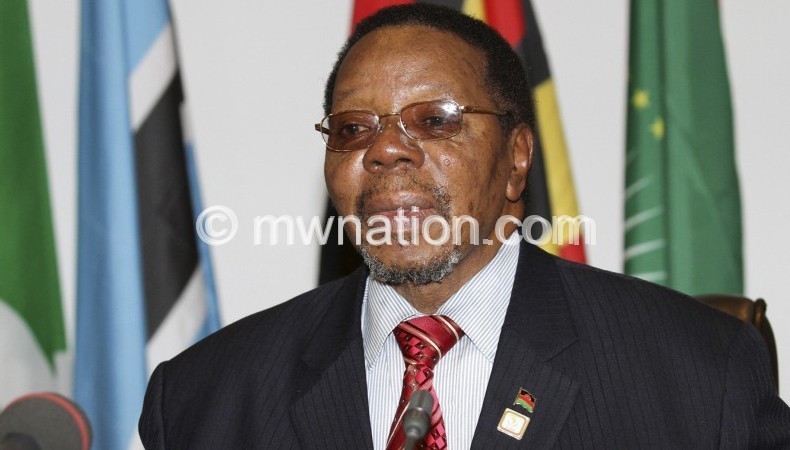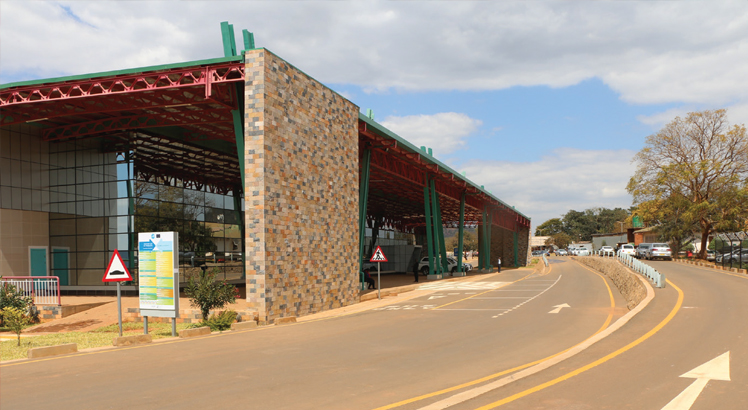Exchange rate regime: One man’s food is another man’s poison

On July 24, Batumeyo Phinifolo, a Mponela-based tobacco grower wore a sombre countenance. He was devastated by a perceived gain in the value of the kwacha against the dollar on that particular day.
“I have just sold 15 bales of burley tobacco at average prices ranging between $1.10 per kilogramme (kg) and $1.20 per kg but much as these prices are relatively better, I am not at peace with the rate at which the kwacha is selling to a dollar at my bank where I usually collect my revenue,” he lamented at the Lilongwe Auction Floors.
On that day, exchange rate displays by most banks inside the floors indicated that the local currency was trading at around K380 to a dollar.
But to Phinifolo, this was not pleasing as some of his bales were sold at a rate beyond K400 when the market had just opened on March 24 2014.
Business Review can vindicate this disgruntled tobacco grower as our files indicate that the kwacha to dollar middle rate in March was K410.1973, according to Reserve Bank of Malawi (RBM) statistics.
As if Phinifolo enigma was by design, a day later on July 25 2014, almost all renowned ‘finest’ economists on Malawi soil gathered at Sunbird Nkopola in Mangochi.
Their gathering for a day had one purpose: to evaluate the performance of monetary and exchange rate policy in Malawi.
That day was more than enough for the experts—who were carefully drawn from the business community, academia, donor community, among others—to trace, weigh and tear into shreds the lane that Malawi’s monetary policy and, of course, the exchange rate policy has evolved over the past years.
But one thing was clear when the symposium wrapped up. That was the quandary or dilemma of which exchange rate regime is best suitable for Malawi, particularly in the context of a new Democratic Progressive Party (DPP) government.
Yes, the exchange regime that when implemented should not make worse-off or inflict welfare loss on a people such as Phinifolo while at the same time elevating the welfare of the other groups of people in the society.
But that is a tall order going by the outcome of that high-level symposium.
—Tracing Malawi’s exchange rate regimes—
Two extreme textbook exchange rate regimes are that of fixed and flexible. By definition, a fixed exchange rate regime is where government fixes the official exchange rate with little movement overtime while on one hand a flexible exchange rate regime is the one which is left to be determined by the free interplay of market forces of demand and supply in the foreign exchange market.
Of course in economics, there are intermediate exchange rate arrangements such as independent float, managed float, crawling peg, adjustable peg, horizontal peg, no currency board arrangement and currency board arrangement and, of course, no own legal tender, among others.
Precedence has it, however, that the entire 50-year period, spanning 1964 to 2014 is simply divided into two sub-periods and these are pegging regimes (1964 to 1993) and preference for more liberal regimes (1994 to 2014).This was also clear during the Mangochi high-level meet.
Delving into the pegging regimes, prior to 1982, the key objectives of exchange rate policy was to avoid exchange rate volatility and to minimise imported inflation. And during the post 1993 era, the exchange rate was primarily used to deal with Balance of Payments (BoP) imbalances, apart from minimising exchange rate volatility.
Worth reflecting are also the motives behind past governments preference to more liberal regimes and specifically in the wake of 1993 referendum and May 1994 elections coupled with a thriving parallel market then.
Such cumulative aspects meant that BoP was under severe pressure as demand for little dollars outstripped supply which culminated into the kwacha being floated. It burst as manifested by a subsequent astronomic depreciation of the local currency.
By November 1994, the currency had lost its value from K4 in February to K17 in November, representing a 300 percent loss in the value. This was a massive fall, according to renowned economist and lecturer of economics at the University of Malawi’s Chancellor College, Exley Silumbu.
And that is a glimpse of Malawi’s exchange rate trajectory.
—Unpacking past government’s clashing exchange rate policies—
At the Mangochi meet, Silumbu was candid when he presented on Malawi’s exchange rate policy and performance since 1964. He was a darling to many as he pinned down each and every past president’s handling of the exchange policy and the way they managed foreign reserves. That fell under political economy in his presentation.
Since independence, the country has had one prime minister and four presidents and these are Kamuzu Banda (1964-1966 as prime minister) and 1966-1994 as president), Bakili Muluzi (1994-2004), late Bingu wa Mutharika (2004-2012), Joyce Banda (2012-2014) and Peter Mutharika in 2014 to date.
“All the former presidents have two things in common, namely, each one antagonised foreign aid donors during office and each one left or inherited a very unstable foreign exchange market,” Silumbu recalled.
By late 1980, the wind of change to multiparty system of governance had been factored into conditionality, he explained. But Kamuzu Banda was too late to change. To force him, foreign aid withdrawal was imposed and this resulted in switching to a more liberal form of exchange rate stance in 1994 due to foreign aid squeeze.
His successor, Muluzi thereafter inherited a very shaky foreign exchange market and shall be remembered for failing to make Malawi reach the completion point to qualify for Highly Indebted Poor Country (Hipc) funds, according to Silumbu.
That led to suspension of the Poverty Reduction and Growth Facility (PRGF) by the International Monetary Fund (IMF) which led to a decision to shift from free-float to managed float as a reaction to a serious economic disequilibrium.
Bingu inherited a managed float regime and sustained one of the most stable regimes since 1994 but later, somewhere towards the end of 2006 he abandoned a managed float and opted for a fixed exchange rate regime at around K140 to a dollar. The currency became highly overvalued later and aid was suspended and left a distorted foreign exchange market in the history of this country, it was agreed during the symposium.
Later, Joyce Banda massively devalued the kwacha on May 7 2012 by 49 percent and consequently liberalised the currency.
The aforementioned clashing exchange policies speak volumes of the dilemma that policy makers and governments encounter in pursuit of stabilising or growing the economy, let alone to suit their political interests.
—Tobacco industry cries foul too—
People such as Phinifolo are not alone in the bandwagon of chanting desolate songs once the tobacco market opens in as far as the exchange rate movement is concerned.
Even tobacco associations and some key institution governing the tobacco industry are puzzled with the exchange movement and call for an immediate redress. The oldest tobacco association in the country, Tobacco Association of Malawi (Tama), and the tobacco industry regulator Tobacco Control Commission (TCC) are all puzzled by a recurring trend annually of an appreciating local currency at the start of the marketing season followed by a depreciating kwacha as the season ends which they say disadvantages growers as they lose out revenue.
Such a complaint was also one of the highlights during the Mangochi meet.
“We have noted that the managed exchange rate regime has got the positives as well as the negatives and the free floating has also got the positives as well as the negatives, so our question is that isn’t there a hybrid concoction of the two regimes looking at the positives of the two and come up with an exchange rate policy which will benefit all of us,” reasoned Tama chief executive officer Graham Kunimba.
He was supported by TCC chief executive officer Bruce Munthali who said the exchange rate swings have greatly impacted tobacco growers before, especially when the kwacha appreciates
at the start of the selling season.
—Voice from the private sector—
The Malawi Confederation of Chambers of Commerce and Industry (MCCCI) think the ruling administration should stick to a floated exchange rate regime. MCCCI chief executive officer Chancellor Kaferapanjira was loud enough and boldly stated that sticking to a floating exchange rate regime could avoid further occurrences of once-off devaluation which he said is detrimental to the economy.
“There is need to stick to a floating exchange rate regime to avoid a once off devaluation which as witnessed before, can cause havoc to both the consumer and business,” he said.
Kaferapanjira is backed by institutions such as the International Monetary Fund (IMF), whose country representative Geoffrey Oestreicher advised the new government recently to ensure sticking to reforms left by Joyce Banda, among which was a flexible exchange rate system.
However, going by Ronald Mangani, a researcher and associate professor of economics at Chancellor, a flexible exchange rate system is a very difficult regime to sustain in an economy where the accumulation of reserves in a huge challenge.
On one hand, fixing the currency on the foreign market, Mangani says, leads to excessive external imbalances and eventually leads to unsustainable fixed exchange rate system which culminates into big devaluations and eventually distorts the economy.
“Therefore, there is need for the authorities to balance between the two because management of the exchange rate within a reasonable band that is commensurate with the available reserves but at the same time mix short-term and medium-term objectives of contacting inflation and achieving growth will be more appropriate,” he said.
Tellingly, it should be the wish of government to have an exchange rate that is in the best interest of business community and all Malawians as a whole.





